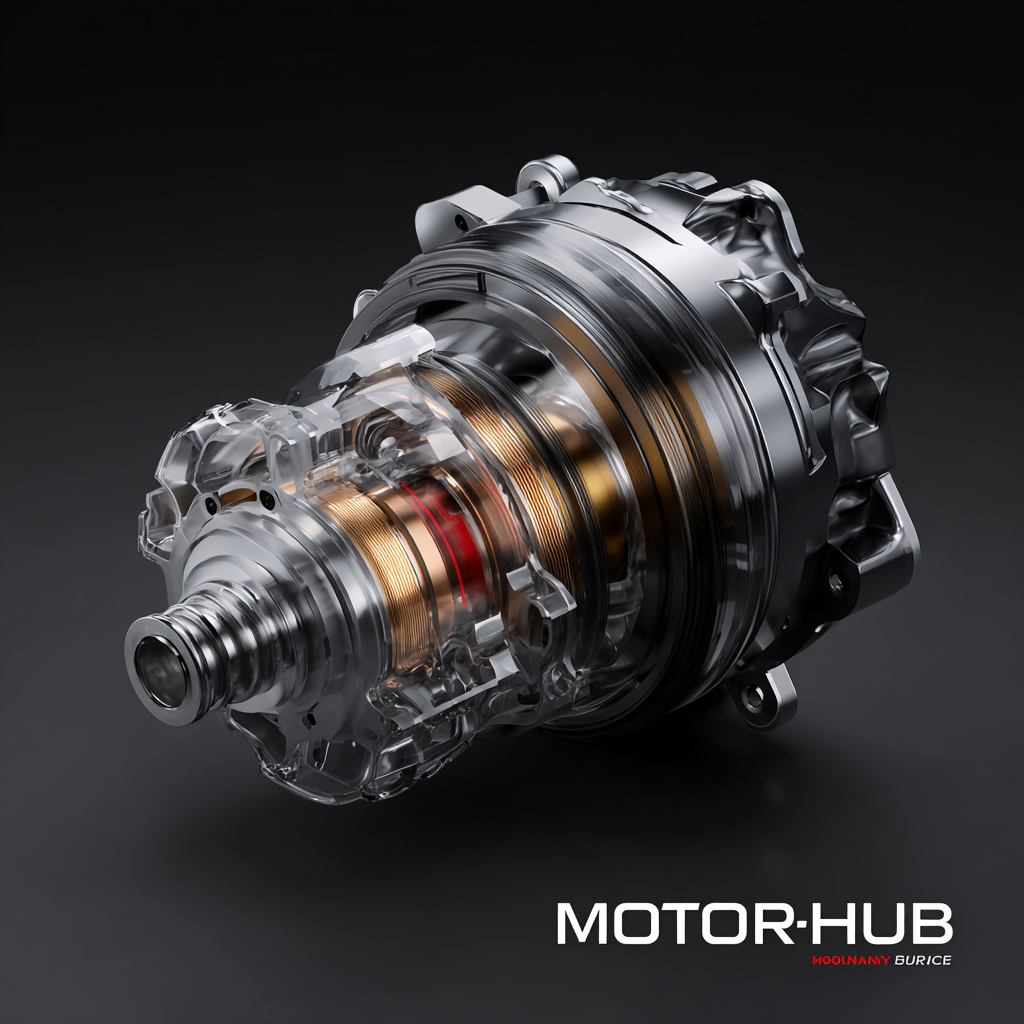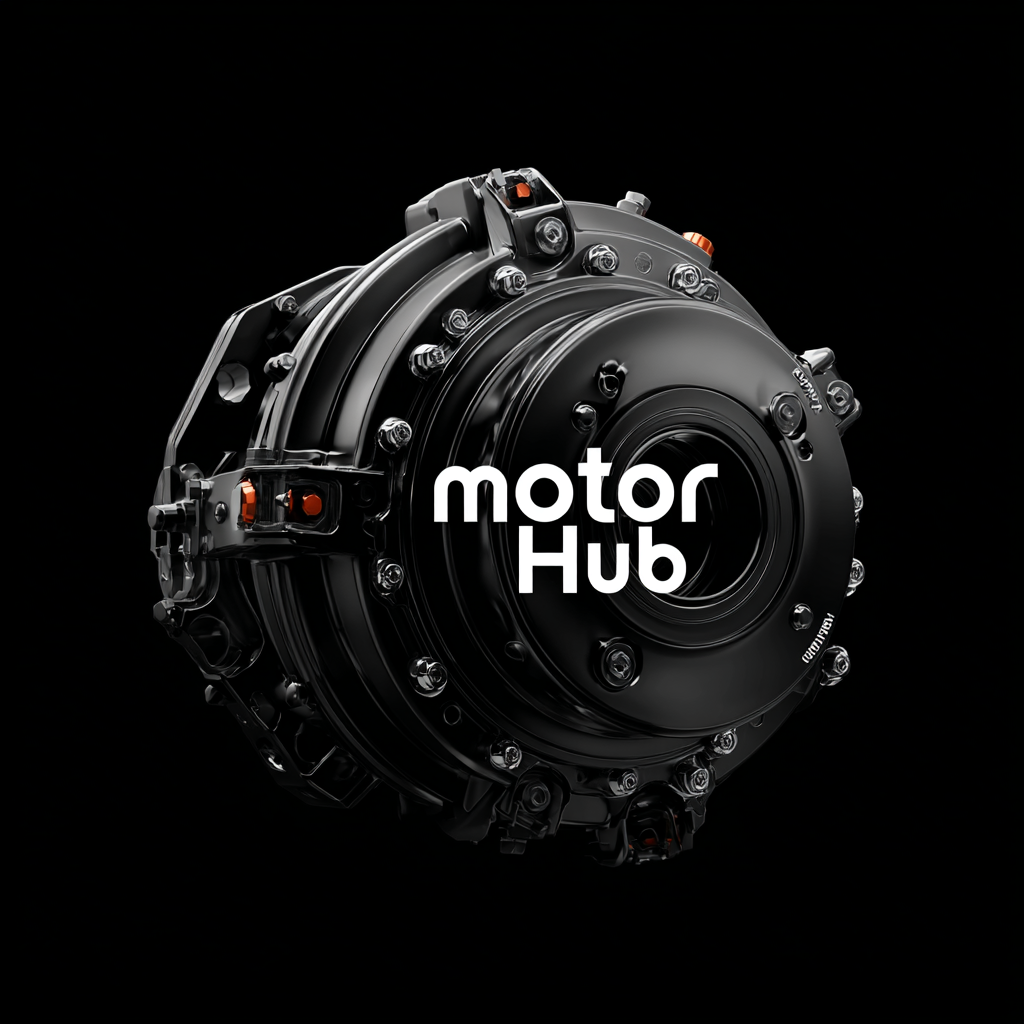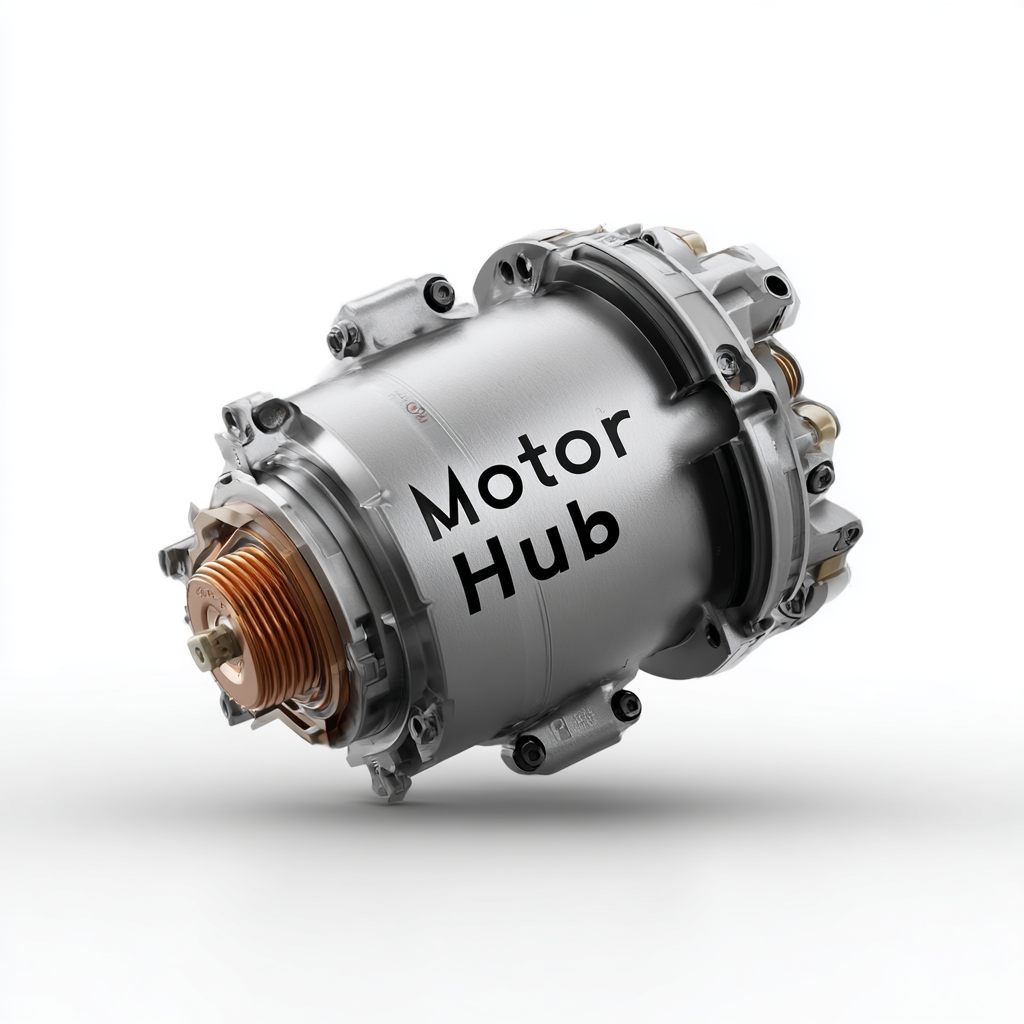
As global markets continue to evolve, the demand for innovative technologies that enhance efficiency becomes increasingly critical. A pivotal player in this arena is the Motor Hub, which has revolutionized various industries by offering a streamlined approach to movement and energy transfer. According to a recent industry report by MarketsandMarkets, the global electric motor market is projected to reach $169.25 billion by 2026, growing at a CAGR of 6.5%. This surge can be significantly attributed to the transformative capabilities of advanced Motor Hub systems, which optimize performance while reducing energy consumption. The adoption of Motor Hubs not only improves operational efficiency but also supports sustainability initiatives, making them an attractive investment for global buyers looking to stay ahead in a competitive landscape.

As we approach 2025, the global motor hub market is set to witness significant transformation, driven by advancements in technology and changing consumer demands. The increasing prevalence of electric vehicles and the push for sustainable transportation solutions are key factors reshaping the landscape. Manufacturers are innovating motor hub designs to improve energy efficiency and performance, appealing to environmentally-conscious buyers worldwide. This creates a burgeoning market where efficiency and sustainability are not just desirable but essential attributes.

Additionally, as global trade continues to expand, the demand for high-quality motor hubs remains strong. Buyers are increasingly looking for specialized solutions that enhance vehicle performance while complying with international standards. Companies that prioritize research and development can capitalize on this trend, providing unique motor hub designs tailored to diverse markets. The integration of smart technologies, such as IoT capabilities in motor hubs, is also gaining traction, offering buyers valuable data insights that can optimize usage and maintenance. As the market evolves, understanding these dynamics will be crucial for stakeholders aiming to navigate the complexities of the motor hub industry effectively.
In the rapidly evolving world of motor hub technologies, several key factors are driving efficiency and effectiveness, making these components essential for global buyers. One of the primary elements is the design optimization of motor hubs, which allows for a more compact structure while maximizing output power and reducing waste. Streamlined engineering not only contributes to lightweight configurations but also enhances the overall performance of electric vehicles and automated systems, resulting in significant energy savings.
Another crucial factor is the integration of smart technology within motor hubs. With advancements in IoT (Internet of Things), manufacturers are equipping motor hubs with sensors that provide real-time data on performance metrics and energy consumption. This data-driven approach allows for predictive maintenance, reducing the likelihood of unexpected failures and downtime. As buyers prioritize sustainability and operational efficiency, the adoption of intelligent motor hub solutions is becoming increasingly favorable in the global market, aligning with the trend towards more intelligent and environmentally friendly mobility solutions.
In 2025, the motor hub market is projected to reach a staggering $2.5 billion, driven by the demand for high-performing and energy-efficient solutions. One of the standout innovations is the integration of IoT technology, allowing motor hubs to communicate with other devices seamlessly. This interconnectivity not only facilitates real-time monitoring and predictive maintenance but also enhances operational efficiency by reducing downtime by up to 30%, according to a recent report by the International Energy Agency (IEA).
Additionally, leading motor hubs are now being designed with advanced materials that significantly lower their weight while maintaining strength. This innovation can lead to a 15% increase in energy efficiency and a reduction in greenhouse gas emissions during operation. Furthermore, features such as regenerative braking systems and optimized gear ratios help in maximizing energy conversion, making top-performing motor hubs an attractive choice for global buyers looking to enhance productivity while also adhering to stricter environmental regulations. With these cutting-edge advancements, the best motor hubs are poised to redefine efficiency standards in various industries.
When it comes to selecting the best motor hub, global buyers face a multitude of options, each with its distinct advantages. Leading brands in the motor hub industry offer diverse features catering to various needs. By conducting a comparative analysis, buyers can identify what sets each brand apart, such as efficiency, durability, and integration with other components. Brands like A, B, and C each have their unique selling points, making it crucial to assess them against specific requirements.
Tip 1: Always check the compatibility of the motor hub with your existing system. Incompatibility can lead to inefficiencies and potential damage.
Another vital factor to consider is the warranty and customer service provided by the brands. Some manufacturers offer extensive support and service packages, which can significantly enhance the value of your investment. Understanding the after-sales support can make a considerable difference in your purchasing decision.
Tip 2: Don't hesitate to reach out to customer service for clarifications on warranties and technical support before making your decision. This can provide peace of mind and ensure that you make an informed choice.

The motor hub industry is on the brink of significant transformation leading up to 2025, driven by advancements in technology and increasing environmental concerns. According to a recent report by Technavio, the global motor hub market is projected to grow by nearly $2 billion from 2021 to 2025, reflecting an annual growth rate of around 5%. This growth is attributed primarily to the rising demand for electric and hybrid vehicles, which require more efficient and lightweight motor systems compared to traditional combustion engines.
Another pivotal trend is the integration of smart technology within motor hubs. The rise of the Internet of Things (IoT) is revolutionizing how motor hubs operate, enabling enhanced performance monitoring and predictive maintenance. A report from Allied Market Research indicates that the global IoT in the automotive market could reach $142.5 billion by 2026, implying that manufacturers investing in smart motor hubs can achieve better operational efficiency and adaptability. As these innovations gain traction, buyers can expect increased functionality and sustainability, making the best motor hubs not just a choice but a necessity in the evolving automotive landscape.
This chart illustrates the market share of the best motor hub technologies across different regions as of 2023, highlighting the significant positions held by the Asia-Pacific and European markets. This trend is expected to influence the motor hub industry significantly by 2025.
